1. Food
1.1. Clubs and activities
1.1.1. Food and Ag Collaborative
1.1.2. MIT Fighting World Hunger
1.2. Jobs in Food
1.2.1. Entrepreneurship and innovation of food/agricultureproducts and services
1.2.1.1. YardSprouts
1.2.1.2. Plovgh
1.2.2. Agribusiness companies
1.2.2.1. Cargill
1.2.2.2. Mars
1.2.2.3. Stonyfield
1.2.2.4. Dannon
1.2.2.5. Darden
1.2.2.6. Driscoll
1.2.2.7. DelMonteFoods
1.2.2.8. KraftFoods
1.2.2.9. BurgerKing
1.2.3. NGO
1.2.3.1. Food and Agriculture Organization
1.2.3.2. World Economic Forum
1.2.3.3. The Sustainable Food Lab
1.2.3.4. Conservation Law Foundation
1.2.3.5. The Food Project
1.2.3.6. World Wildlife Foundation
1.2.4. Food Services
1.2.4.1. Bon Appetit Food Management Company
1.2.4.2. Aramark
1.2.4.3. Sodexho
1.2.5. Food retailers
1.2.5.1. Whole Foods
1.2.5.2. Trader Joe's
1.3. Courses
1.3.1. 11.377 Food Systems and the Environment
1.4. Competitions
1.4.1. Hult Challenge
1.5. NATACHA HARDY
2. Materials and Waste
2.1. Jobs in waste
2.1.1. Haulers and recyclers
2.1.1.1. Recology (SF)
2.1.2. Upcycled products
2.1.3. e-Waste management
2.2. Clubs and activities
2.2.1. Wastechangers
2.2.2. Waste Journal Club
2.3. Courses
2.3.1. Industrial Ecology
2.3.2. Energy, materials, and manufacturing
2.3.3. D-Lab Waste
2.4. Labs and Centers
2.4.1. Material Systems Lab
2.4.2. Urban Metabolism group
2.4.3. Community Innovators Lab (CoLab)
2.5. JONATHAN KRONES
3. Human capital
3.1. Clubs and activities
3.1.1. Social Impact Club
3.1.1.1. SloanEd
3.1.2. Leadership and Human Capital Club
3.2. Courses
3.2.1. Service Operations
3.2.2. Managing Sustainable Business for People and Profit
3.3. Jobs in Human Capital
3.3.1. Training and education
3.3.2. Corporate human resource management
3.3.3. Policy
3.3.4. NGO and Union
3.4. ELENA SCHRUM
4. Energy and Climate
4.1. Jobs in Energy
4.1.1. Enterprise energy management
4.1.1.1. Buildings and facilities
4.1.1.2. Industrial
4.1.2. Energy Efficiency Service Provision
4.1.3. Renewable Energy
4.1.3.1. Tech provision
4.1.3.2. Project development
4.1.4. Traditional/Fossil Energy
4.1.5. Energy and Carbon Finance
4.1.6. Regulatory
4.1.7. Utilities
4.2. Clubs and activities
4.2.1. MIT Energy Club@Sloan
4.2.2. Clean Energy Prize
4.3. MIT Centers
4.3.1. MITEI Events
4.3.2. Joint Program on the Science and Policy of Global Change
4.3.3. EE strategy initaitve (michaels)
4.3.4. Climate CoLab
4.4. Courses
4.4.1. Energy Ventures
4.4.2. Sustainable Energy
4.4.3. Enabling an Energy Efficiency Society
4.5. AGNES CHU
5. International Development
5.1. Jobs in Development
5.1.1. Multinational Institutions / Gov't Agencies
5.1.1.1. Development banks (e.g., ADB, AfDB, IDB
5.1.1.2. United Nations (e.g., World Food Programme, Development Program)
5.1.1.3. USAID
5.1.1.4. World Bank / IFC
5.1.1.5. World Economic Forum
5.1.2. Consulting
5.1.2.1. Dalberg
5.1.2.2. FSG Partners
5.1.2.3. Monitor Group - Monitor Inclusive Markets, Monitor Institute
5.1.3. Foundations/Non-profits
5.1.3.1. Gates Foundation
5.1.3.2. Rockefeller Foundation
5.1.3.3. Oxfam International
5.1.3.4. Clinton Foundation / Clinton Global Initiative
5.1.4. Social Enterprise
5.1.4.1. Endeavor
5.1.4.2. Ashoka
5.1.4.3. One Acre Fund
5.1.4.4. Kick-Start
5.1.4.5. Samasource
5.1.4.6. Accion
5.1.5. Impact Investing
5.1.5.1. Acumen Fund
5.1.5.2. Root Capital
5.2. Clubs and activities
5.2.1. SEID (Sloan Entrepreneurs for International Development)
5.2.2. International Development Initiative (IDI)
5.2.3. MIT Sloan Africa Business Club
5.3. Courses
5.3.1. D-Lab
5.3.2. Development Ventures
5.3.3. Macroeconomics of Sustainable Development
5.3.4. 15.127J Designing and Sustaining Technology Innovation for Global Health Practice
5.3.5. 15.383 Entrepreneurship and Sustainable Economic Development: The Case of Puerto Rico (Puerto Rico Lab)
5.3.6. 15.389 Global Entrepreneurship Lab (G-Lab)
5.3.7. 15.390 New Enterprises
5.4. MIT Centers
5.4.1. Trust Center
5.4.2. Legatum Center
5.4.3. Media Lab
5.4.4. International Development Group (IDG), Department of Urban Studies and Planning (DUSP)
5.4.5. J-PAL
5.5. Competitions & Funding
5.5.1. Public Service Center travel grant and fellowship
5.5.2. MIT IDEAS Global Challenge
5.5.3. Legatum Fellowship
5.5.4. MIT $100K
5.5.5. Sloan Social Impact Fellowship
5.5.6. Technology Dissemination Fellowship (IDI)
5.6. XI WANG
5.6.1. xiwang@sloan.mit.edu
6. Water
6.1. Clubs and activities
6.1.1. MIT Water Club
6.1.2. H2O-1B: Safe Water for 1 Billion People
6.2. MIT Centers
6.2.1. MIT Center for Clean Water and Clean Energy (CWCE)
6.3. Jobs in Water
6.3.1. New technology development
6.3.1.1. Desalination
6.3.1.1.1. Oasys Water
6.3.1.1.2. Clean Membranes
6.3.1.1.3. Nano H2O
6.3.1.1.4. Desalitech
6.3.1.2. Agriculture
6.3.1.2.1. Driptech
6.3.1.2.2. Toro
6.3.1.2.3. Netafim
6.3.1.3. Water Efficiency
6.3.1.3.1. Visenti
6.3.1.3.2. Rainbank
6.3.2. Corporate water management (infrastructure, consulting)
6.3.2.1. GE Water
6.3.2.2. Siemens
6.3.2.3. Veolia Water
6.3.2.4. Banyan Water
6.3.2.5. Artemis Project
6.3.2.6. IBM Smarter Planet
6.3.2.7. Dow Water
6.3.3. Public sector / NGOs / social enterprise
6.3.3.1. Local
6.3.3.1.1. Boston Water & Sewer Commission (BWSC)
6.3.3.1.2. Littleton Electric Light & Water Department
6.3.3.1.3. Aquarion Water Company
6.3.3.1.4. Whitewater, Inc.
6.3.3.1.5. Cape Cod Water Protection Collaborative
6.3.3.1.6. Charles River Watershed Association
6.3.3.2. National / International
6.3.3.2.1. Environmental Protection Agency
6.3.3.2.2. The Nature Conservancy
6.3.3.2.3. World Wildlife Fund
6.3.3.2.4. Conservation International
6.3.3.2.5. Charity Water
6.3.4. Water finance
6.3.4.1. XPV Capital
6.3.4.2. Meidlinger Partners
6.3.4.3. Water Asset Management
6.3.4.4. Westwater Research
6.3.5. Water users
6.3.5.1. Coca Cola
6.3.5.2. Pepsi
6.4. Courses
6.4.1. Energy Ventures
6.4.2. Development Ventures
6.4.3. Desalination & Water Purification (Course 2)
6.4.4. Water Sanitation & Infrastructure in Developing Countries (Course 11)
6.4.5. Water Resource Systems (Course 1)
6.4.6. Water & Wastewater Treatment Engineering (Course 1)
6.4.7. Water, Landscape, and Urban Design (Course 4)
6.4.8. Groundwater Hydrology (Course 1)
6.4.9. Water & Development (Harvard)
6.5. SEAN GRUNDY
7. Integrative/ multi-issue
7.1. Clubs and activities
7.1.1. Sustainability@Sloan
7.1.2. Sustainability Summit
7.1.3. Sustainability@MIT
7.1.4. UA Committee on Sustainability
7.2. Jobs in Sustainability
7.2.1. Sustainability Consulting
7.2.1.1. Deloitte Sustainability practice
7.2.1.2. BluSkye
7.2.2. Corporate Sustainability Management
7.2.3. NGOs and think tanks
7.2.3.1. Oxfam
7.2.3.2. SustainAbility
7.2.3.3. The Sustainability Consortium
7.2.4. International Institutions
7.2.4.1. International Organization for Sustainable Development
7.2.5. Government Agencies
7.2.5.1. EPA Sustainability
7.3. Courses
7.3.1. S-Lab
7.3.2. L-Lab
7.3.3. Capstone in Sustainability
7.3.4. ESD Sustainability Summit

